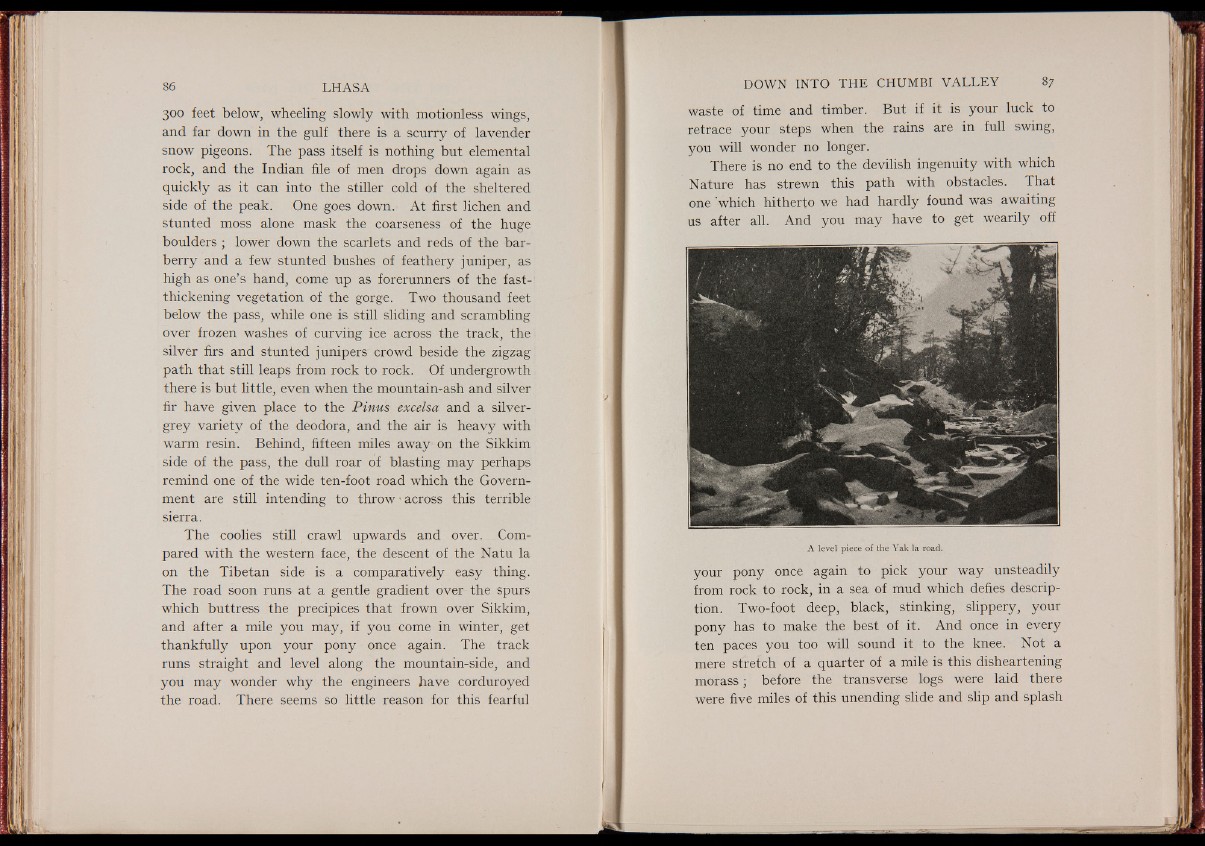
300 feet below, wheeling slowly with motionless wings,
and far down in the gulf there is a scurry of lavender
snow pigeons. The pass itself is nothing but elemental
rock, and the Indian file of men drops down again as
quickly as it can into the stiller cold of the sheltered
side of the peak. One goes down. At first lichen and
stunted moss alone mask the coarseness of the huge
boulders ; lower down the scarlets and reds of the barberry
and a few stunted bushes of feathery juniper, as
high as one’s hand, come up as forerunners of the fast-
thickening vegetation of the gorge. Two thousand feet
below the pass, while one is still sliding and scrambling
over frozen washes of curving ice across the track, the
silver firs and stunted junipers crowd beside the zigzag
path that still leaps from rock to rock. Of undergrowth
there is but little, even when the mountain-ash and silver
fir have given place to the Pinus excelsa and a silver-
grey variety of the deodora, and the air is heavy with
warm resin. Behind, fifteen miles away on the Sikkim
side of the pass, the dull roar of blasting may perhaps
remind one of the wide ten-foot road which the Government
are still intending to throw ■ across this terrible
sierra.
The coolies still crawl upwards and over. Compared
with the western face, the descent of the Natu la
on the Tibetan side is a comparatively easy thing.
The road soon runs at a gentle gradient over the spurs
which buttress the precipices that frown over Sikkim,
and after a mile you may, if you come in winter, get
thankfully upon your pony once again. The track
runs straight and level along the mountain-side, and
you may wonder why the engineers have corduroyed
the road. There seems so little reason for this fearful
waste of time and timber. But if it is your luck to
retrace your steps when the rains are in full swing,
you will wonder no longer.
There is no end to the devilish ingenuity with which
Nature has strewn this path with obstacles. That
one 'which hitherto we had hardly found was awaiting
us after all. And you may have to get wearily off
A level piece of the Y a k la road.
your pony once again to pick your way unsteadily
from rock to rock, in a sea of mud which defies description.
Two-foot deep, black, stinking, slippery, your
pony has to make the best of it. And once in every
ten paces you too will sound it to the knee. Not a
mere stretch of a quarter of a mile is this disheartening
morass; before the transverse logs were laid there
were five miles of this unending slide and slip and splash